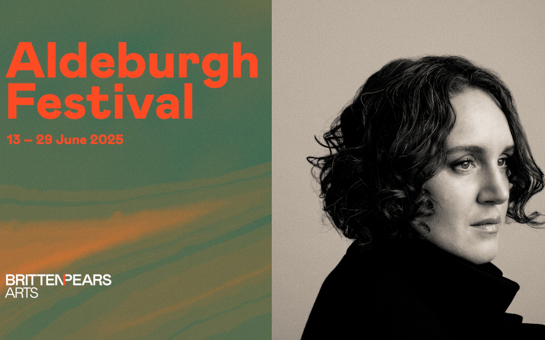- Helen Grime
Folk (2024)
- Chester Music Ltd (World)
Commissioned by the BBC Scottish Symphony Orchestra and Britten Pears Arts
Unavailable for performance.
- S + 2.2.2.1+cbn/2.2.2.1/2perc/cel.hp/str
- Soprano
- 25 min
- Zoe Gilbert
- English
Programme Note
Several years ago now, Claire Booth passed me the novel Folk by Zoe Gilbert. She was passionate about the book, and I reacted similarly strongly immediately after reading it. We both thought that the writing had a lot of dramatic potential, but also that it was inherently musical. Zoe, who grew up playing the oboe - strangely coincidental as I was an oboist too – agreed to write a libretto based on her book. The stories in the book have roots in folklore but Zoe creates a dark, fantastical world which is entirely her own. In the first song, I have attempted to conjure the sound of a band with fast, rhythmic fiddle music and the insistent beating of a drum. The 2nd song is redolent of a folk song. The 3rd is very quick and mercurial, with much vocal virtuosity for the voice but also in the orchestra. The final song is dark but also mournful, a lament which is an essentially lyrical at its heart. It’s been a great pleasure to work on this piece with Claire Booth, one of the singers who I most admire.
Zoe writes:
‘The songs in Folk depict the lives and longings of the people of Neverness, a fictional island inspired by the Isle of Man and its folklore. In Neverness, the folkloric is as real as everyday life.
Prick Song
Prick Song evokes the Gorse Mother, a folkloric figment who haunts the headland where boys and girls play dangerous games of seduction amongst the thorns.
Fishskin Hareskin
Replete with folk names for hares, Fishskin Hareskin expresses the grief of a young woman for her lost hares as she wrestles with her new life as a fishwife.
Water Bull Bride
In Manx folklore, water bulls drag maidens down into the river’s depths, but in ‘Water Bull Bride’, a young woman experiences her encounter with a water bull as a seduction, and ultimately, love.
Long have I Lain
Drawn from the tradition of singing bones that appear in British folk ballads, ‘Long have I Lain’ is a lament by a murderous sister, a tale of jealousy and loss.’
Scores
Features

- Helen Grime: Orchestral Portrait
- The music of Helen Grime has been performed by leading orchestras around the world. Discover her orchestral music in this portrait highlighting eight of her meticulously-crafted, deeply felt works.
More Info

- Helen Grime to be Featured Composer at Aldeburgh 2025
- 17th December 2024
- Composer Helen Grime will be one of four featured artists at the 76th Aldeburgh Festival in June 2025.

 Located in the UK
Located in the UK
 Located in the USA
Located in the USA
 Located in Europe
Located in Europe